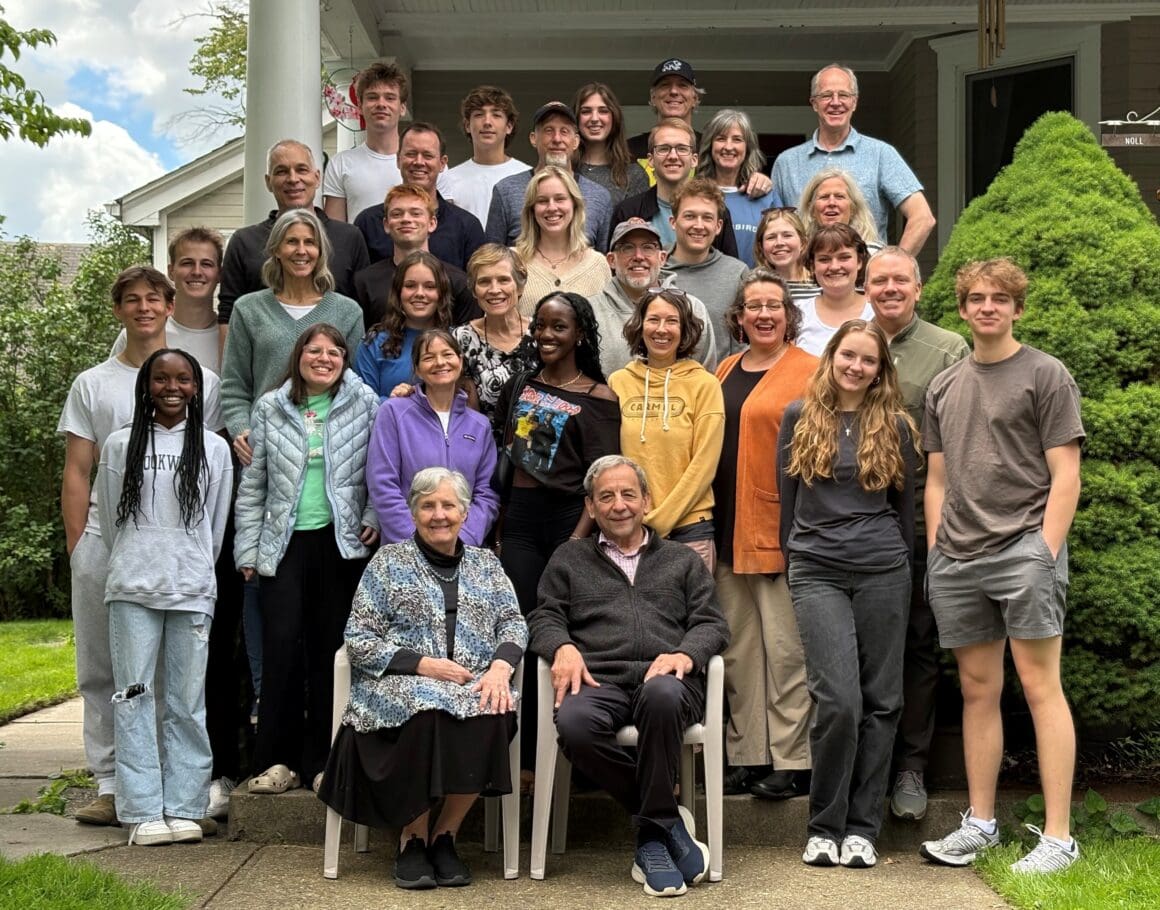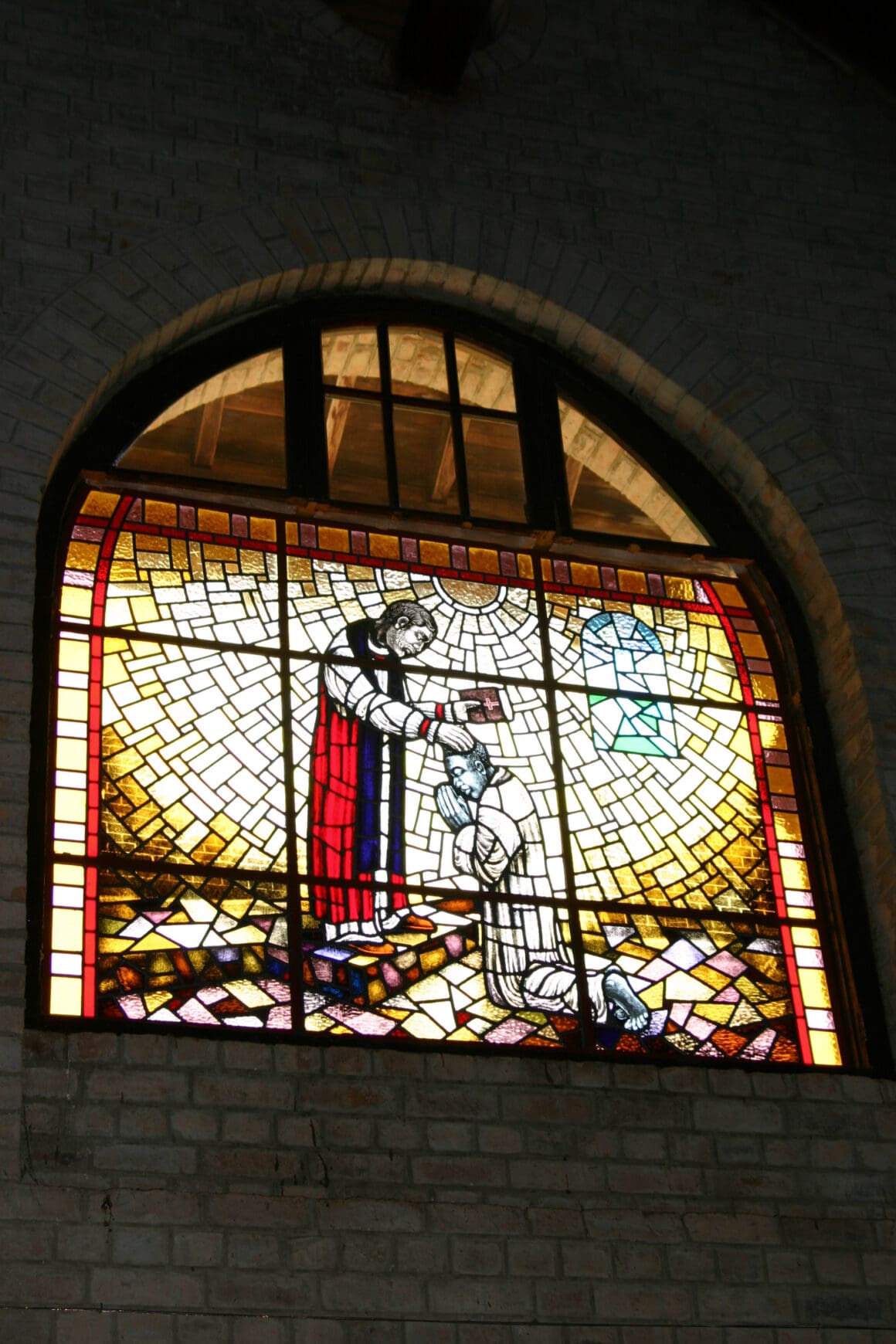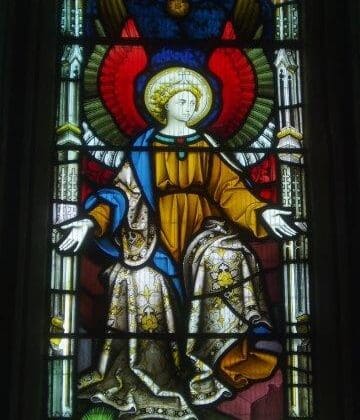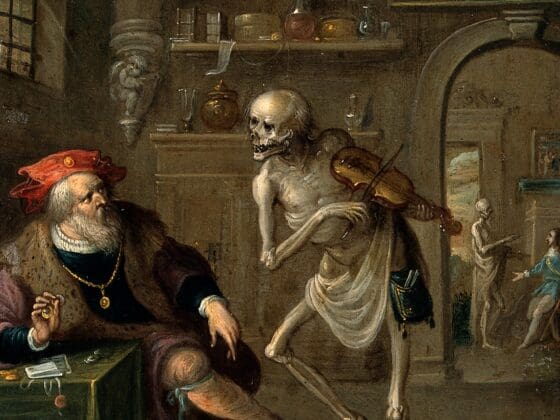The Rev. Dr. Stephen and Mrs. Peggy Noll
Note: Twenty-five years ago my wife Peggy and I sensed a call to serve in Uganda at Uganda Christian University. Prior to our departure, we addressed our home congregation, St. Stephen’s in Sewickley on June 4, 2000, the Sunday between Ascension and Pentecost.
I served as Vice Chancellor from 2000 to 2010, during which time, UCU became the first chartered private university in the country and grew from several hundred to more than ten thousand students. That growth has continued to this day, with 14,000 students, 7 campuses, and a medical school, which opened in 2015. Uganda Christian University was and remains an explicitly Christian university, including the Bishop Tucker School of Divinity and Theology, which educates clergy for the Anglican Church of Uganda and more widely in East Africa.
Launched at New Wineskins Conference in 2000, UCU Partners supports the University with student scholarships, major and minor capital projects, and a semester-abroad program for North American college students.
This year we hosted a reunion of thirty of our former missionaries at UCU and their children (see photo below), and I reminded them at a final service that painting oneself into the Great Commission is an ongoing call to “your sons and daughters, to old and young” (Acts 2:17). Now that my wife and I are growing silver with age, it is incredibly comforting to know that there are many here in North America and throughout the global Communion who will be carrying forward the mission of Christ.
***
As many of you know, my wife Peggy and I are leaving Sewickley and St. Stephen’s after 21 years to go to Uganda, in East Africa, where I shall become the first Vice Chancellor, i.e., President, of a new Anglican University. We are not going into a virgin jungle, nor will we be evangelizing a pagan people. Uganda indeed is one of the most Christian countries in the world. That it is so is no accident of history but the result of people many years ago and to this day who painted themselves into Jesus Christ’s Great Commission. Let me give three examples.
In 1875, the famous explorer Henry Morton Stanley – the one of “Dr. Livingstone, I presume” fame – published letters in the London Telegraph appealing for volunteers to open up the kingdom of Buganda in Central Africa. Shortly thereafter a 36-year old Scot named Alexander Mackay presented himself to go out with the Anglican Church Missionary Society, even though Mackay was not an Anglican. Neither was he a clergyman but an engineer, which served him well in making friends with the King of Buganda. During a tumultuous thirteen years, Mackay preached and baptized the first Ugandan converts and saw forty of them martyred. Finally, Mackay was forced to flee the country due to a Muslim coup and died of malaria in Tanganyika. Nevertheless his work bore fruit for Anglican Christianity in Uganda, and in 1927 his body was re-interred in Namirembe Cathedral in Kampala.
Now a second example. Westerners brought the Gospel to Uganda, but the evangelization of the interior was accomplished by Africans themselves. The most famous of all these pioneers was Apolo Kivebulaya. Kivebulaya was converted and baptized by a CMS missionary at age 30 and immediately offered himself as an evangelist to the western kingdoms of Uganda. After many years of work, at age 57, he had a vision of Jesus, who directed him to seek out the pygmy peoples deep in the Congo forest. He learned their language, translated Mark’s Gospel for them, and won them to Christ.
My final example is that of a second-generation missionary, Alfred Robert Tucker, who arrived in Uganda as its first bishop in 1893. Tucker, like Mackay before him, found himself in the midst of local and international politics, the end result of which was the establishment of Anglican Christianity as the main religion of Uganda. Tucker had an understanding far beyond his time. He believed that the Anglican Church of Uganda should raise up its own national leaders rather than relying on missionary clergy from the West. Before his death, he managed to found a theological seminary for native clergy, later called Bishop Tucker Theological College. Today all the bishops of Uganda are black and have been trained at this seminary. [Note: In 2007, we dedicated a window in the beautiful “Principals’ Hall” at UCU, depicting Bishop Tucker ordaining Apolo Kivebulaya, along with Tucker’s words: “it cannot be repeated too often, that if ever Africa is to be won for Christ, it must be by the African himself.”]
And now the Church of Uganda has taken his vision one step further, growing this theological college into a Christian university, which will serve the whole country and even beyond to neighboring lands like the Sudan and Rwanda. I have committed to come to Uganda Christian University, a bit like Bishop Tucker, with a firm desire that eventually a Ugandan will take my place at the helm. [Note: To my delight, the Rev. Canon Dr. John Senyonyi was my successor (2010-2020) and Professor Aaron Mushengyezi succeeded him (2020 to the present).]
What is it that binds these diverse people together – and binds them together with us who sit here in suburban Pittsburgh? The tie that binds is the Great Commission, read as our Gospel lesson today. Jesus’ Great Commission is given in all four Gospels. Many of you may know the most famous version from Matthew, where Jesus says: Go therefore and make disciples of all nations…” (Matthew 28:18-19).
I am using St. Luke’s version (Luke 24:45-53) because Luke more than any other writer shows how Jesus’ resurrection appearances tie in directly to the empowering of the Church for mission. It is also the appropriate text as we look to the feast of Pentecost next week. Let’s look at three aspects of the Great Commission according to St. Luke.
First, there is the converting impact of Jesus’ presence. A stranger had accompanied the disciples on the Road to Emmaus on the evening of Easter Day without ever revealing his identity. Now as they gather to break bread, Jesus himself stood among them. Their reaction was similar to that of doubting Thomas. They were startled and frightened, and supposed that they saw a spirit. There was no way in their practical fishermen’s minds that they could explain Jesus except as a ghost. Jesus knew their troubled hearts, and so he did something very practical to change their minds: See my hands and my feet, that it is I myself; handle me, and see; for a spirit has not flesh and bones as you see that I have. And while their hearts moved from troubled disbelief to joyful astonishment, he asked for fish to eat and ate it before them.
There is a famous painting by Caravaggio of the supper at Emmaus, where you can see one of the disciple’s hands thrown out from his body in amazement and coming out of the picture at you. A wonderful symbol of the fact that Jesus’ presence leads to changed hearts and changed lives. And this is the first necessary part of the Great Commission. Unless you have the person of Jesus etched into your heart, unless he is present in your daily life, you simply cannot and will not be able to paint yourself into his Great Commission.
I became a Christian in college. I remember one of the key texts in my conversion was a word from the German martyr Dietrich Bonhoeffer. In The Cost of Discipleship, he said: “When Christ calls a man, he bids him come forth and die.” (Bonhoeffer was executed by the Nazis in 1945.) People have come up to me since we announced our decision to go to Uganda and said: “We so much admire your courage in going, especially at your advanced stage of life!” Which I appreciate. But in another sense, I have to say, “the terms on which we are going to the mission field are no different from the terms on which we became Christians in the first place.” There is finally no real difference between the call to discipleship and the call to mission. Maybe we’re further along the basepath from discipleship to mission, but it’s all part of the same inning!
A second aspect of the Great Commission we see in the Emmaus account is the power of God’s word in Scripture to hold and lead. Having startled the disciples into thinking “maybe he really is alive,” Jesus goes on to open their mind to the Scriptures by showing them that his Resurrection life and coming ascension to the right hand of authority were no accident but part of the plan of God, prepared from all time. Everything written about me, he says, in the law of Moses and the prophets and the psalms must be fulfilled. The plan of salvation is all there in the Old Testament, but it is not the plan that Jews were expecting. They were looking for the Messiah to rid them of the Romans by his military victories; instead he rid them of their sins by his death on a Roman cross. Thus it is written, Jesus continues, that the Christ should suffer and on the third day rise from the dead.
This plan of salvation is so marvelous that it cannot be confined to God’s chosen people Israel. God himself had prepared for this moment of history when he called Abraham and his seed to be a blessing to all nations. Now the plan is fulfilled when repentance and forgiveness of sins should be preached in his name to all nations, beginning from Jerusalem (verses 44,46-47). To be a Great Commission Christian is to have confidence in God’s Word, in the whole counsel of God from Genesis to Revelation, and to believe that His Word can bring salvation and new life to all the peoples of the earth.
I count it as a privilege to have taught the Bible at Trinity Episcopal School for Ministry for the past 21 years. My original call was to build up the renewal movement as a scholar teaching seminarians. And I got to reach a whole generation of them, folks like Coleman Tyler, Paul Fuener, David Brannen, and Jeff Rawn: your rector alone escaped me in the first class at Trinity. [Note: Coleman, Paul, David, and Jeff were Trinity grads who served as curates at St. Stephen’s, whereas the Rector, Geoff Chapman, had graduated from Trinity just prior to my arrival in 1979.] I expected to continue in this call, until God, through his Word, intervened last summer.
I am going to ask my wife Peggy to pick up the narrative about how we were addressed by the Word of God very specifically in our call to Uganda Christian University.
*****
Peggy: Prior to our going to Uganda last summer on a trip to explore many things, including a possible call, I had asked people to please pray that we would hear what we needed to hear and see what we needed to see while we were there, and I think someone remembered to pray, as you will see. To be honest, I was assuming and hoping that we would come back certain that we were not meant to leave our home here in Sewickley.
In fact, it was only our third day on the African continent and I had not at all felt at home in Uganda, until the Sunday night of our first visit to the University, which happened to be the last Eucharist of their term. I was sitting at the back of the chapel with the Deputy Vice Chancellor, Bishop Eliphaz Maari, and the Gospel reader stood up and read the lesson for that Sunday. It was the story in Matthew 19, verses 16-22, about the Rich Young Man. That started my tears. I suddenly realized that perhaps God could, indeed, call us. My ears were out to hear! At the end of that passage, Jesus says to the man: “Come, follow me,” but the man was not able to and went away sad.
I went away sad for a somewhat different reason, but that night I couldn’t sleep. I thought, I’m going to read the lesson again, and I got out my Episcopal lectionary calendar to see the day’s verse. It said Matthew 10, not Matthew 19, so I thought there might be a loophole, and I quickly turned to Matthew 10:32-42, the lesson for that Sunday. There I read:
Anyone who loves his father or mother more than me is not worthy of me; anyone who loves his son or daughter more than me is not worthy of me; and anyone who does not take his cross and follow me is not worthy of me. Whoever finds his life will lose it, and whoever loses his life for my sake will find it. (Matthew 10:37-39)
So I felt that the Lord was not letting me off the hook. In fact, this text spoke to the hard part for me, the idea of leaving the children and family and friends. The one remaining question in my mind was: “Did the people at the University choose the ‘rich young man’ passage to try to lure Steve there?” – because I knew they wanted him to come. All that week it bothered me. Finally, I found a service sheet with the lessons printed for the Sunday past, and to my chagrin I learned that Matthew 19 was the assigned reading, as the Church of Uganda follows the English, not the American, lectionary.
So as our time in Uganda came to an end, Steve and I concluded that the Lord, in this global church of ours, had used two lessons from Scripture to speak to our hearts and to tell us to follow him, and that’s what we are seeking to do, with your prayers and His guidance.
*****
Stephen: The Great Commission begins with the converting presence of Jesus Christ. We are then grasped by the power of his word. Finally, we are told to be witnesses to him wherever His Spirit leads. You are witnesses of these things, Jesus says. And behold, I send the promise of my Father upon you; but stay in the city, until you are clothed with power from on high. The Great Commission is not fulfilled so much by master plans of evangelism as by people praying for the kingdom and ready to respond to the Holy Spirit when he comes. This is exactly what happened on the Day of Pentecost, and the great advances in world mission that we have seen in recent years are equally sovereign acts of his grace. Who would have believed that the fastest-growing Christian churches today would be in Communist China?
Being a Great Commission witness means living by the Father’s promise, and since he has already made known his will to make disciples of all nations, when he does call, we can be certain of his presence and provision. And how will he provide? Often in sovereign miraculous ways. Just as often he will provide by means of those Great Commission Christians who “remain in the city” and support those who go out.
One of the most awesome pictures of the Last Judgment is the one where the King comes and separates the sheep on his right hand and the goats on his left. Mission support is precisely the criterion of this last judgment:
Then the King will say to those at his right hand, “Come, O blessed of my Father, inherit the kingdom prepared for you from the foundation of the world; for I was hungry and you gave me food, I was thirsty and you gave me drink, I was a stranger and you welcomed me, I was naked and you clothed me, I was sick and you visited me, I was in prison and you came to me.” Then the righteous will answer him, “Lord, when did we see thee hungry and feed thee, or thirsty and give thee drink? And when did we see thee a stranger and welcome thee, or naked and clothe thee? And when did we see thee sick or in prison and visit thee?” And the King will answer them, “Truly, I say to you, as you did it to one of the least of these my brethren, you did it to me.” (Matthew 25:34-40)
Who are the least of these his brethren? Probably not the poor in general in this text. Rather the least of Christ’s brethren are those disciples who have gone out with only one cloak and staff to take the Good News directly to the nations. And the sheep are those Christians who recognized that Jesus himself was particularly present in this work. (And I might add the goats are Christians who hardened themselves to the needs of the missionary brethren.)
I titled this sermon, “Painting yourself into the Great Commission.” Maybe “painting” is not quite the right word for our time. Computer editors can now airbrush people out of photos or superimpose figures into events, as was the case in the movie Forrest Gump, where the hero appears at all the major events of the past thirty years. Be that as it may, in the Gospel accounts of the Great Commission, we are invited, expected, to paint ourselves into the scene at the supper at Emmaus and later on the mountain where Jesus ascends to the Father, and later still on the Day of Pentecost. We are part of the extended fellowship of witnesses. Indeed, since Jesus is now in heaven at God’s right hand, we know the Holy Spirit is available to us in a way he wasn’t on Easter Day.
Will you paint yourself into the Great Commission? Is it possible that God has a call on your life to go out in missionary service? Short term or long-term? Locally in Pittsburgh, or as far as Uganda? Are you at his disposal? And if you are not called to go now, are you at his disposal to support the work of those who are? As I have gotten more involved with the worldwide Church, I am absolutely astounded by how much work is being done. Let me give you one example.
Shortly after I began building support for Uganda Christian University, I was contacted by an Episcopalian in Colorado, named John Linquist. John works for an organization called Engineering Ministries International. EMI, as it is called, is a network of professional engineers, architects, and planners who offer their time free of charge to go to Third World institutions and help build them up. We are already hoping to have a site visit in Uganda from John and a team from EMI as we begin our strategic planning for the new university. [Note: EMI sent a team of 10 in June 2001, leading to the adoption of a campus plan that has led to UCU being named one of the ten most beautiful universities in Africa. One young woman architect on the team designed gratis the large hall named after the founding Archbishop Livingstone Nkoyoyo, where worship, teaching, and assemblies take place.]
I am proud to have been part of two congregations, first Truro Episcopal Church in Fairfax, and now St. Stephen’s, that are holding up the Great Commission and supporting those who follow it. [Note: Truro Church and St. Stephen’s supported us for ten years in our mission, as well as making capital contributions to UCU.] We are grateful that we are sent by you and that we will be remembered by you in prayer and action. Sitting here a year ago, we would have had no idea what God was going to call us to. Perhaps there are those of you this morning whom the Spirit is leading to paint yourselves into the Great Commission in a new and remarkable design.
Let us pray:
Lord Jesus Christ, who revealed yourself to the disciples in the breaking of bread and commanded them to wait for the promise of the Father: open our ears to hear your call, open our hearts to the peoples of the world whom you have redeemed; open our hands to those brethren who go out in Your Name; through the same Jesus Christ our Lord, who with the Father and the Holy Spirit, is worshiped and adored one God forever and ever. Amen.
UCU Reunion (May 2025)





